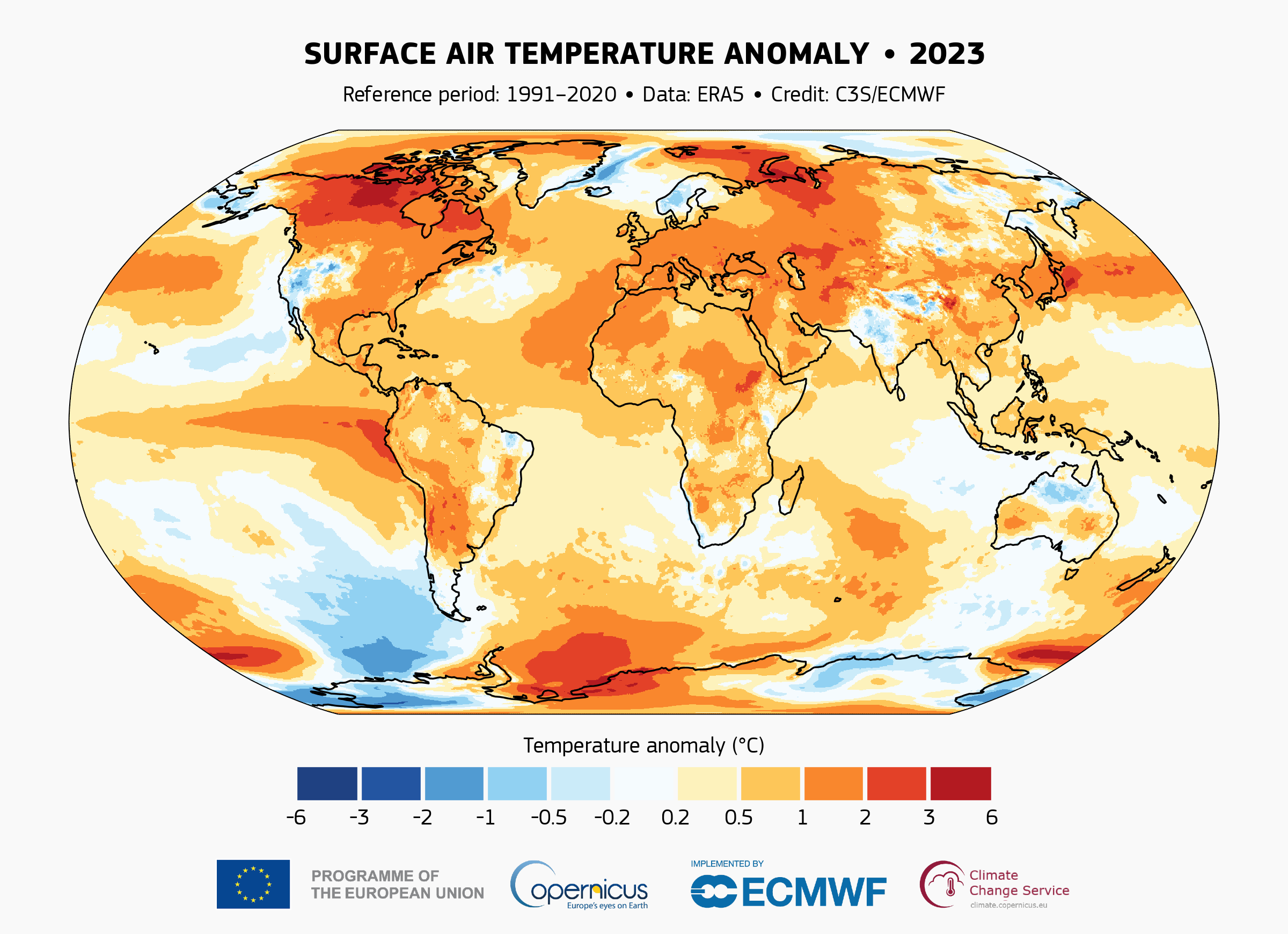It’s official: 2023 was the hottest year on Earth since records began, overtaking the previous record-breaking year by a significant margin.
The global average temperature of 2023 was 1.48°C (2.6°F) warmer than pre-industrial levels in the 19th century and 0.60°C (1.08°F) warmer than the 1991-2020 average, according to the Copernicus Climate Change Service.
These temperatures were 0.17°C (0.30°F) warmer than the previous highest annual temperatures seen in 2016.
“Temperatures during 2023 likely exceed those of any period in at least the last 100,000 years,” Samantha Burgess, deputy director of the Copernicus Climate Change Service, said in a statement.
But that’s not all. There were several other climate records that were smashed in 2023:
- It was the first year where all days had global average temperatures over 1°C (1.8°F) warmer than the pre-industrial period.
- Nearly half of the days in 2023 were more than 1.5°C (2.7°F) warmer than the 1850-1900 pre-industrial level.
- For the first time, two days in November were more than 2°C (3.6°F) warmer than the 1850-1900 level.
- July and August 2023 were the warmest two months on record.
- Average air temperatures were the warmest on record, or close to the warmest, over substantial parts of all ocean basins and all continents (bar Australia).
- Atmospheric concentrations of carbon dioxide and methane – two of the most prominent greenhouse gases driving climate change – hit record levels in 2023, reaching 419 parts per million and 1902 parts per billion respectively.

Surface air temperature anomaly for 2023 relative to the average for the 1991-2020 reference period.
Image credit: C3S/ECMWF
The record-breaking year of 2023 was given a boost by the unprecedented warm conditions seen from June.
It’s significant that 2023 was an El Niño year. This is a phase in the El Niño-Southern Oscillation (ENSO) cycle whereby global temperatures are pushed upwards. It’s a highly complex natural process that’s closely associated with warming temperatures in the Pacific Ocean around the equator having a knock-on effect on the rest of the planet.
However, make no mistake: these records are a damning reflection of how human activity is changing our planet. One of the prime causes of the warm temperatures seen in 2023 was increasing concentrations of greenhouse gas concentrations in the atmosphere produced by the burning of fossils, industrial agriculture, and other human activities.
As ever, climate scientists are stressing that the planet needs to urgently ditch fossil fuels to negate the deepening impacts of the climate crisis.
“The extremes we have observed over the last few months provide a dramatic testimony of how far we now are from the climate in which our civilisation developed. This has profound consequences for the Paris Agreement and all human endeavours. If we want to successfully manage our climate risk portfolio, we need to urgently decarbonise our economy whilst using climate data and knowledge to prepare for the future,” noted Carlo Buontempo, director of the Copernicus Climate Change Service.
Source Link: 2023 Was Likely To Have Been Earth's Hottest Year In Over 100,000 Years